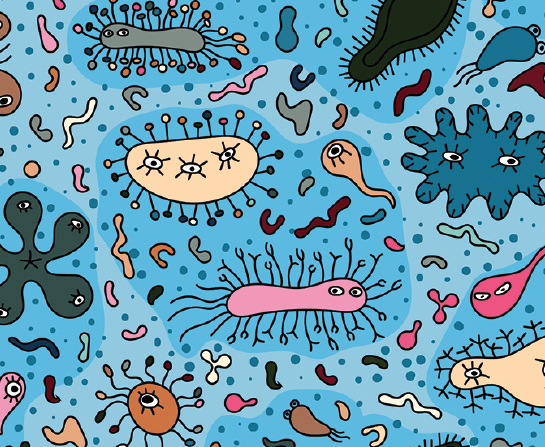Words Lim Teck Choon

Bad Bacteria
The bacteria responsible for listeriosis is Listeria monocytogenes. People get infected by eating food contaminated with these bacteria.
What are the Symptoms to Watch Out For?
This is the tricky part, as symptoms may vary from one person to another.
Most people experience mild symptoms. Those who are most vulnerable to the more serious consequences are listed below – people in these groups should see a doctor for proper diagnosis and treatment as soon as possible if they suspect that they have a case of listeriosis.
Be Very Careful if You Are:
|
Careful with These Foods!
Raw milk
- Raw milk may contain not only L monocytogenes – other types of potentially harmful microorganisms may be present as well!
- Drink only pasteurized milk – check label on milk to be sure.
- Refrigerate milk at 5°C or below.
Cheese, yoghurts and ice creams made from raw milk
- Always check the label to make sure that the product uses pasteurized milk.
Melons
- The recent Australian outbreak is caused by eating contaminated melons.
- After cutting a melon, eat or refrigerate right away. Don’t leave it in room temperature to be contaminated!
- When refrigerating, make sure that the temperature is below 5°C. Don’t keep for more than a week.
Raw sprouts (alfalfa, clover, radish, bean sprouts, etc)
- Cook sprouts thoroughly; avoid eating raw or lightly cooked ones.
- Note that rinsing alone will not remove harmful bacteria.
Processed meats (hot dogs, burger patties, pâtés, cold cuts, etc)
- Cook until the internal temperature is 75°C or higher before eating.
- Refrigerate opened packages for not more than one week, while unopened packages should not be kept longer than two weeks.
REFRIGERATION TIP Keep these “high risk” foods refrigerated separately from other foods to avoid contamination. Also, always check to make sure that the fridge is 5°C or below while the freezer should be 0°C or below. |

